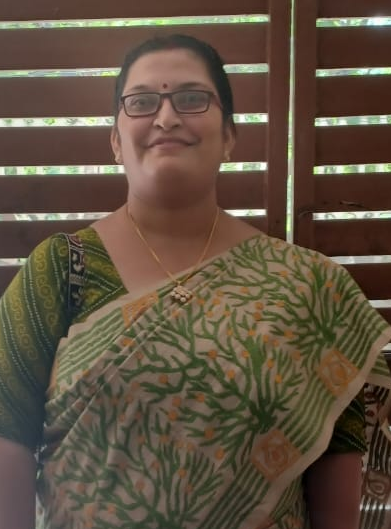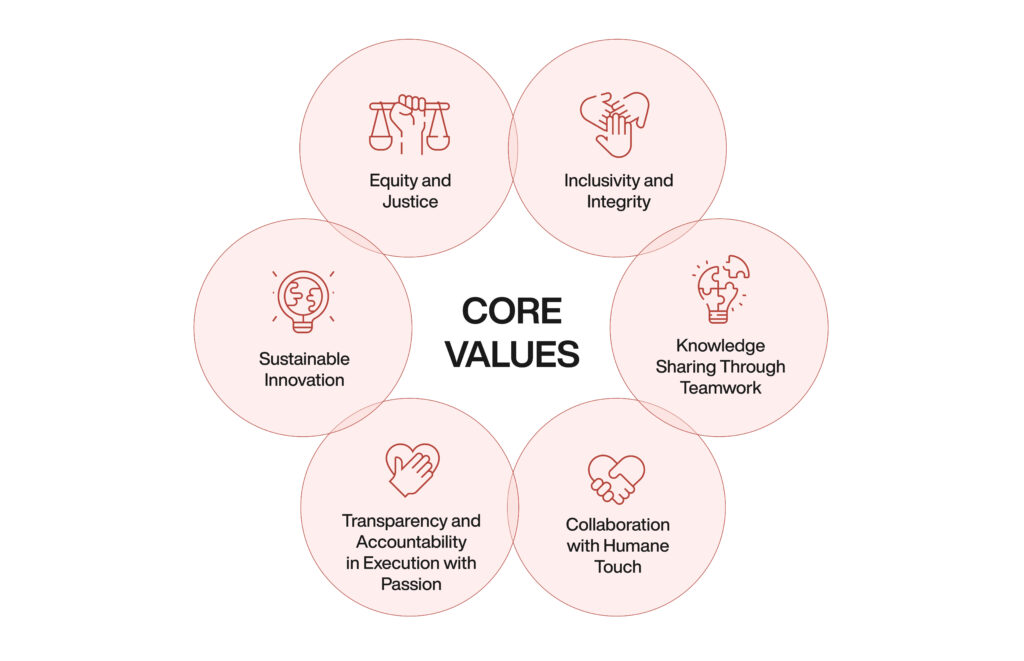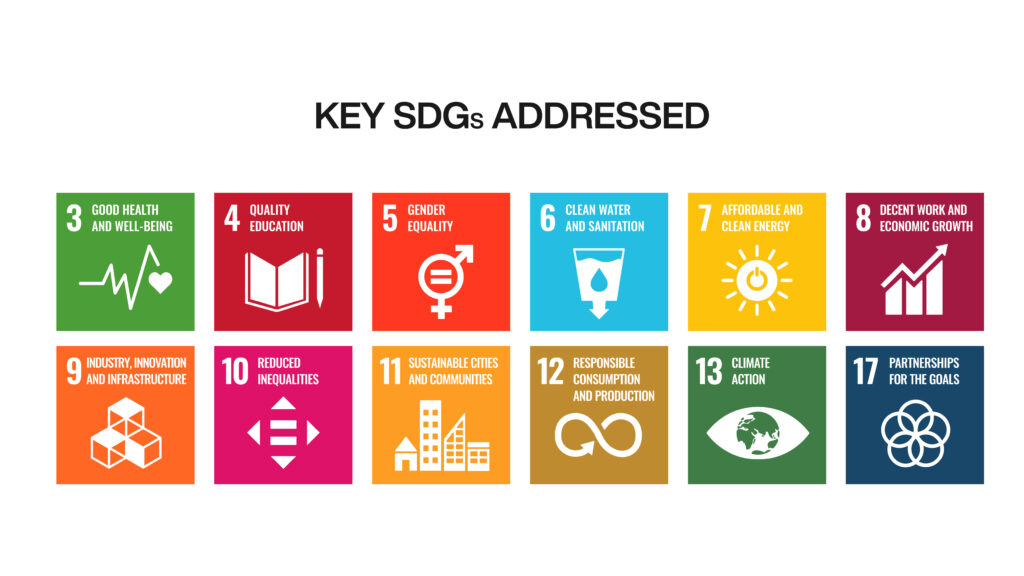
As an advanced signatory of United Nations Principles for Responsible Management Education (UN PRME), T. A. Pai Management Institute (TAPMI), Bengaluru, housing the Centre for Social Empowerment (CSE), is committed to advancing some of the 17 Sustainable Development Goals (SDGs). CSE primarily focuses on leveraging TAPMI’s position as a knowledge hub for responsible business practices to create impactful, evidence-based strategies for social change and pave a way for a sustainable future addressing some of the Global goals by bridging theoretical knowledge and practical expertise.
CSE got officially incorporated as a unit of Manipal Academy of Higher Education, Bengaluru on the 1st July, 2025. It functions as a multidisciplinary hub focused on generating innovative solutions and data-driven insights to address pressing social issues like unemployment, inclusivity of indigenous groups, financial literacy, entrepreneurship opportunities, digital literacy, accessibility to safe basic amenities and health care facilities, to name a few. The focus of attention is on the underserved geographies where the underprivileged population mostly resides. Through research, consulting, training, and student engagement, the Centre works to address the socio-economic and cultural inclusivity concerns through its empaneled network of Social Purpose organizations (both For-profit and Not-for Profit) with an aim to strengthen their ecosystem working for the distressed population and foster a new generation of empathetic, socially responsible leaders.
There is a pressing need for management institutions to move beyond theoretical knowledge and actively engage in solving complex social problems. Significant gaps that have been identified between the theoretical knowledge and the solutions to the endemic social concerns include a lack of rigorous, data-driven research to inform social policy, insufficient capacity-building support for social-purpose organizations, and a need for structured platforms that connect academia, non-profits, Government, and industry to foster collaborative solutions. CSE acts as a platform to connect theoretical expertise to drive practical solutions towards building a sustainable society.
There is a need in today’s world to bring in social equality so that all societies can grow and prosper in an equitable manner. Social empowerment through social innovation is the foundation of building a just, inclusive, and progressive society. It is about enabling individuals and communities to gain access to resources, opportunities, and decision-making processes, thereby ensuring progressive growth of society.
Management, as a discipline and practice, plays a vital role in driving social empowerment by organizing resources, creating systems, and developing strategies that translate vision into reality. Effective management ensures that empowerment initiatives are not merely symbolic but sustainable and impactful. For example, in education (SDG-4), health (SDG-3), gender equality (SDG-5), Economic growth (SDG-8), Innovation and infrastructure (SDG-9), and community development (SDG-11), management provides the framework for planning, execution, monitoring, and evaluation. By adopting principles of transparency, accountability, and inclusivity, managers become facilitators of empowerment, ensuring that marginalized groups have a platform to participate and benefit equally. TAPMI, through this Centre for Social Empowerment (CSE) plans to use business and management knowledge for the betterment of society.
Modern management embraces values of social responsibility, ethical leadership, and stakeholder engagement, which are essential for addressing societal inequalities. The focus of TAPMI and CSE is to facilitate society to grow sustainably via social empowerment with the support of academic and practical knowledge of Business and Management principles.

There is a need in today’s world to bring in social equality so that all societies can grow and prosper in an equitable manner. Social empowerment through social innovation is the foundation of building a just, inclusive, and progressive society. It is about enabling individuals and communities to gain access to resources, opportunities, and decision-making processes, thereby ensuring progressive growth of society.
Management, as a discipline and practice, plays a vital role in driving social empowerment by organizing resources, creating systems, and developing strategies that translate vision into reality. Effective management ensures that empowerment initiatives are not merely symbolic but sustainable and impactful. For example, in education (SDG-4), health (SDG-3), gender equality (SDG-5), Economic growth (SDG-8), Innovation and infrastructure (SDG-9), and community development (SDG-11), management provides the framework for planning, execution, monitoring, and evaluation. By adopting principles of transparency, accountability, and inclusivity, managers become facilitators of empowerment, ensuring that marginalized groups have a platform to participate and benefit equally. TAPMI, through this Centre for Social Empowerment (CSE) plans to use business and management knowledge for the betterment of society.
Modern management embraces values of social responsibility, ethical leadership, and stakeholder engagement, which are essential for addressing societal inequalities. The focus of TAPMI and CSE is to facilitate society to grow sustainably via social empowerment with the support of academic and practical knowledge of Business and Management principles.

It is both an honor and a responsibility to introduce the Centre for Social Empowerment (CSE) at T. A. Pai Management Institute (TAPMI), Bengaluru.
The Decade of Action for the Sustainable Development Goals (SDGs) to reflect humanity’s collective aspiration for equity, dignity, prosperity, and peace within planetary boundaries is faced with a variety of challenges like poverty and unemployment, inequities in access to health and education, digital and financial exclusion, and the systemic marginalization of indigenous and vulnerable communities. But none of these are insurmountable. They just demand our urgent, coordinated, and evidence-driven action.
To my belief, management education must not be confined to theory; it must also engage directly with society’s most pressing problems, equipping students, faculty, and partners to become co-creators of solutions. The Centre for Social Empowerment is our vehicle to do just that. CSE has been envisioned as a multidisciplinary hub that blends research, consulting, training, and student engagement to tackle issues that matter most to underserved communities:
Through our network of partners, from social enterprises and cooperatives to government bodies and international agencies, we will co-design, implement, and monitor impactful interventions. Most importantly, we will ensure that our efforts are evidence-based, scalable, and sustainable.
The Centre for Social Empowerment is not just an institutional initiative; it is a call to action. It is an invitation to join hands—academia, government, civil society, and industry—to co-create solutions that address inequality, strengthen communities, and safeguard our shared future.
I welcome partners, insights, and commitment in this remarkable journey together.
Regards,
Prof. Sweta Bhusan
Chair and Coordinator
Centre for Social Empowerment

It is both an honor and a responsibility to introduce the Centre for Social Empowerment (CSE) at T. A. Pai Management Institute (TAPMI), Bengaluru.
The Decade of Action for the Sustainable Development Goals (SDGs) to reflect humanity’s collective aspiration for equity, dignity, prosperity, and peace within planetary boundaries is faced with a variety of challenges like poverty and unemployment, inequities in access to health and education, digital and financial exclusion, and the systemic marginalization of indigenous and vulnerable communities. But none of these are insurmountable. They just demand our urgent, coordinated, and evidence-driven action.
To my belief, management education must not be confined to theory; it must also engage directly with society’s most pressing problems, equipping students, faculty, and partners to become co-creators of solutions. The Centre for Social Empowerment is our vehicle to do just that. CSE has been envisioned as a multidisciplinary hub that blends research, consulting, training, and student engagement to tackle issues that matter most to underserved communities:
Through our network of partners, from social enterprises and cooperatives to government bodies and international agencies, we will co-design, implement, and monitor impactful interventions. Most importantly, we will ensure that our efforts are evidence-based, scalable, and sustainable.
The Centre for Social Empowerment is not just an institutional initiative; it is a call to action. It is an invitation to join hands—academia, government, civil society, and industry—to co-create solutions that address inequality, strengthen communities, and safeguard our shared future.
I welcome partners, insights, and commitment in this remarkable journey together.
Regards,
Prof. Sweta Bhusan
Chair and Coordinator
Centre for Social Empowerment

The primary mission of the Centre for Social Empowerment (CSE) is to foster inclusive, sustainable growth by empowering the marginalized groups in the underserved geographies with the right knowledge, and opportunities to achieve social and economic empowerment and cultural inclusivity.
We are committed to advancing equity, dignity, and active participation through student engagement, knowledge sharing, advocacy, capacity-building, and collaborative action.
TAPMI Centre for Executive Learning (TCEL) is committed to transforming professionals and organizations through industry-focused executive education. With a strong emphasis on leadership development, strategic thinking, and functional expertise, TCEL’s programs are designed to enhance managerial capabilities and business acumen. The executive education portfolio comprises four key categories: In-Company Programs, Open Programs, Certification Programs, and Online/ Part Time Degree Programs.
The Centre for Social Empowerment (CSE) is dedicated to creating sustainable and empowered society through knowledge from management education, research and practice.

Equity and Justice
Inclusivity and integrity
Transparency and accountability in execution with passion
Collaboration with a humane touch
Sustainable innovation
Knowledge sharing through teamwork
The primary objective of the Centre for Social Empowerment (CSE) is to generate innovative solutions and data-driven insights for addressing social issues through responsible and sustainable organizational practices and ecosystem strengthening. The prime objectives of the CSE are as follows:
To act as a thinktank collaborating with other academic institutions, businesses, nonprofits, and Government agencies and intermediaries to design and implement innovative solutions that have a broader social impact.
The centre will prepare future business leaders with an empathetic understanding of social responsibility, ethical business practices, and sustainability.
Through data-driven research on social innovation and social enterprises, the centre will generate pragmatic knowledge for societal development.
These will be achieved through a couple of short-term and long-term objectives as follows:
Short-term objectives | Medium-term objectives | Long-term objectives |
Objective 1: Execute funded research and consulting projects.
Objective 2: Deepen strategic collaborations with social purpose organizations. Objective 3: Scale student engagement through social immersion projects.
| Objective 1: Establish a social innovation lab & think tank Objective 2: Deliver High-Impact Capacity Building Objective 3: Host an annual multi-stakeholder conference
| Objective 1: Become a Premier Knowledge Hub Objective 2: Establish a Partnered Endowment Fund Objective 3: Cultivate a Global Community of Social Innovators |

Team CSE
Role | Name, Designation, Institute |
Coordinator | Dr. Sweta Bhusan, Assistant Professor, TAPMI, Bengaluru |
Co-coordinators | (Cdr) Dr. Navaneetha Krishnan, In-charge Dean, TAPMI Bengaluru |
Internal academic collaborators | Dr. Meera Baindur, Associate Professor, TAPMI Bengaluru |
Dr. T. S. Hariharan, Assistant Professor, TAPMI Bengaluru | |
Dr. Priya Sharma, Assistant Professor, TAPMI Bengaluru | |
Dr. Subhasree Kar, Assistant Professor, TAPMI Bengaluru | |
Dr. Kalpana R, Assistant Professor, TAPMI Bengaluru | |
External academic collaborators | Dr. Sarasu Thomas, Director, Manipal Law School, Bengaluru |
Dr. Sanjukta Ghosh, Srishti Manipal Institute of Art, Design and Technology | |
Dr. Varun Gupta, Srishti Manipal Institute of Art, Design and Technology | |
Dr. Arun Y. Patil | |
External industry collaborators | Mr. Harinarayan, CEO, Manipal Foundation |
Mr. Sriram Ananthanarayanan, Director, Partnership and Impact, United Way Bengaluru | |
Mr. Sumit Singh, Advisor, National Cooperative Union of India | |
Mr. Ramnath Ballala, Director-Health Systems, Blockchain for Impact (BFI) | |
Mr. Abdul Latheef, Research Consultant, Catalyst Management System Global | |
Advisors | Ankur Grover, Founder, Tinker Labs |
Staff | Ms. Praveena Kundar |
Call for collaboration
In its commitment towards fostering inclusive and sustainable growth, the Centre for Social Empowerment (CSE) invites collaborators from the industry. We are open to brainstorming, knowledge sharing and feedback. Feel free to connect with us over the email, phone or discuss across the table over a cup of coffee.
Prof. Sweta Bhusan
Chair and coordinator, CSE
Assistant Professor, Strategy and General Management Area, TAPMI, Bengaluru
Chair, Centre for Social Empowerment, TAPMI, Bengaluru
Manipal Academy of Higher Education (MAHE)
Govindapura village, Yelahanka,
Bengaluru- 560064
Email id: sweta.bhusan@manipal.edu, tcse.tapmiblr@manipal.edu
Phone number: 080- 2249-7076
Ms. Praveena Sundar
Admin Executive, Centre for Social Empowerment, TAPMI, Bengaluru
Manipal Academy of Higher Education (MAHE)
Govindapura village, Yelahanka,
Bengaluru- 560064
Email id: praveena.kundar@manipal.edu, tcse.tapmiblr@manipal.edu
Phone number: 080- 2249-4187
Established in 1981, TAPMI has been at the forefront of management education, shaping future leaders through academic excellence, innovation, and real-world learning. With a commitment to nurturing global wealth creators and industry-ready professionals, we continuously benchmark ourselves against the best. Guided by our core values—Excellence, Trust, Honesty, Innovation, Commitment, and Student-Centricity—we foster a culture of ethics, sustainability, and transformative learning.